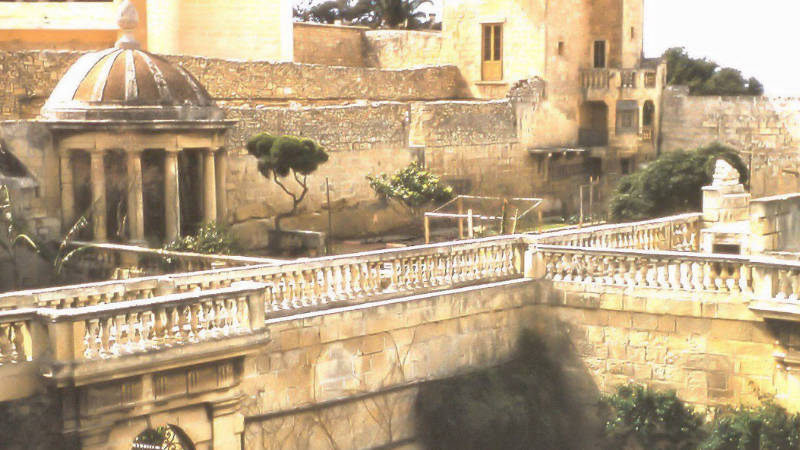“We used to have picnics here,” the old man said. “We sat in these gardens, under tall trees.”
“Where, behind that block of flats?”
“Listen to me. There was a beautiful garden on this hill, with fruit trees and views of the sea. Even in summer, we could still feel a breeze.”
“But grandpa, it’s just a hotel. Can we go now?”
The old man shook his head.
“Grandpa, it stinks. And there are so many cars.”
“I want you to know where you came from,” he said, clutching the small boy’s arm. “And what this used to be.”
“Well, if that place was so important, why isn’t it still here?”
Is this the sort of future you imagine for your grandchildren? Because that’s where Malta is headed.
Developers talk about a housing crisis and Malta’s rapidly increasing population. “High rises are needed,” they say. “It’s better to build up than spread across the land.”
If that’s true, then why are they building luxury flats? Who’s supposed to live in them? Even the foreign oligarchs buying Malta’s EU passports are only renting empty letterboxes tacked onto a mouldy basement flat.
“Progress” doesn’t mean regression, or being frozen in time. Everyone wants a better quality of life, more money, better living spaces. And we all argue about what we think is the best way to get there.
Unfortunately, a lot of people are being manipulated by tribal loyalties, and blinded by the idea of short term gain. A little more money in my pocket right now, and the comforting message that “we’ve never had it so good.” These are appealing distractions. But whatever you do, don’t look at the other hand.
Do you really want a bargain-basement version of some soulless, money-grubbing Dubai?
That seems to be Joseph Muscat’s vision. A cut-rate emirate where people live in shabby towers, with underpaid immigrants to do their dirty work. A place where greed, materialism, and the constant competition to out-shop and out-brag one’s neighbours determines social status on a hierarchy of worth.
But Malta is not Dubai.
Yes, both are being built on short term sources of wealth. Malta’s building boom is funded by the sale of EU passports, online gaming, aggressive tax structures, and riskier schemes like fuel smuggling and tuna laundering. Those will run out long before the UAE’s oil resources dry up and put an end to indoor ski hills and irrigated desert golf courses.
But Dubai is also a sprawling city in the midst of a vast desert. It can expand without limit, as wealthy residents seal themselves into luxury cars and glide from one self-contained high rise to the next down broad roads.
Where will Malta expand when what’s left of its green space is gone? Are you going to start filling in the sea?
And has anyone even questioned whether Dubai is a model to emulate? It’s often called “the Vegas of the Middle East”, all surface glitter and no substance. I can’t speak for the UAE, but Las Vegas beyond the faux-glamorous Strip always struck me as a soulless place of poverty and broken dreams.
Who in their right mind would want to turn a beautiful Mediterranean island into that?
I’ll tell you. Joseph Muscat, along with his inner circle of politicians-for-sale and greedy developers.
Manoel Island, the City Centre Project in St. George’s Bay, the Fortina development in Sliema, the Halland Complex, the Shoreline development at Smart City, Zonqor, and yet another fuel station on ODZ land.
The more they eat, the more they want.
Muscat has even started talking about “developing” Gozo — perhaps the last bastion of that wonderful, slow-paced Maltese way of life.
But this overbuilt chaos doesn’t have to be your future. You can live on an island where development plans actually improve your quality of life.
Traffic flows, green spaces, and noise can and are taken into account, even in the world’s largest, most densely-inhabited cities.
But when urban planning is driven by kickbacks to politicians from massive developers, what you get instead is out of control corruption, outright theft of land which should be public, and overpriced apartments no one needs, built solely in the hope of cashing in on inflated prices before they collapse.
If you care about the Malta your grandchildren will inherit, then here’s what I think you should do.
Grab a sheet of paper and a pencil, and sit down — preferably at a cafe in a village square. Now draw a line down the middle of the page. On the left, write down those things you want to share with your grandchildren. Those elements of your island childhood you know you could never find anywhere else.
The warmth of the sun in December. The soft splash of water on the side of a luzzu. Summer hours, with afternoons spent at the beach. The happy sounds of children playing outside. An uninterrupted siesta on a hot afternoon. Grilled fish at a wooden table by the harbour with friends.
And on the right side of the page, write down where Maltese life is currently headed. Heavy air choked with construction dust. The taste of car exhaust in your mouth. The incessant pounding of jackhammers. Beaches choked with fish farm slime. Hideous towers where honey-coloured stone used to glow in the sun. And the pent up rage of a population shoved together into smaller and smaller spaces.
Which vision do you want?
This is your home, and this is your choice.
But please choose carefully, because this out of control train is gathering speed, and there’s no going back. The past is gone forever, every time.












